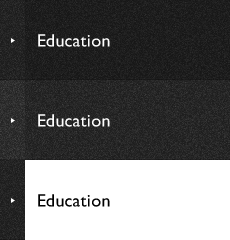Skills are cultivated to grasp a variety of diverse problems related to management, production, and economics from a scientific and engineering perspective, and to solve them using approaches from mathematics, economics, business administration, and management techniques building on cutting-edge knowledge in industrial engineering and economics. In order to achieve this, the educational program is arranged so that students can improve their specialization even further by conducting their own research through research seminars and doctoral thesis research, as well as increase their creativity through Major Courses, Humanities and Social Science Courses, and Career Development Courses that encourage students to engage with society through their studies.
-
- Major Courses
- Learn to apply skills learned in each specialized area to practical problems in education and business in order to develop a deeper understanding.
-
- Research-Related Courses
- Fine-tune practical skills necessary for research through participation in projects that exceed the framework of the research lab and through training for presentations, etc.
-
- Research Seminars
- Under the guidance of a supervisor, students attend seminars and read literature relevant to their research theme, receive advice on their work, and deepen the practical skills needed for discovering and solving problems.
*2Indicates the standard model where the Doctoral Program is completed in three years.
. Any information published on this site will be valid in relation to Science Tokyo.


